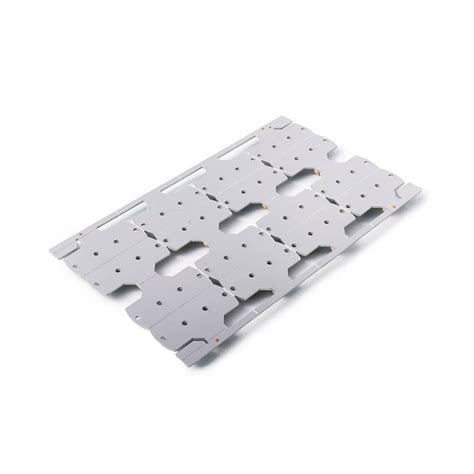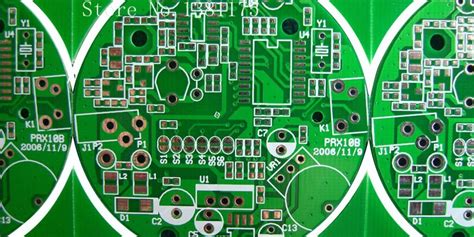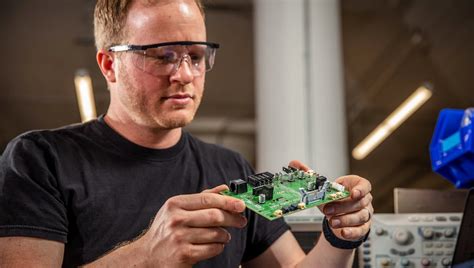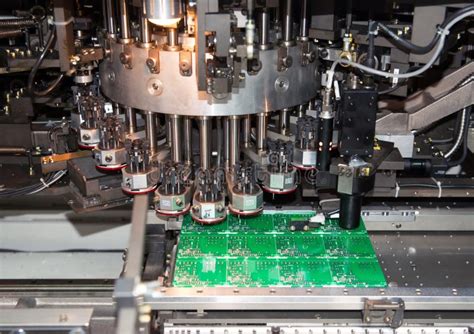Leading the Charge: The Rise of Aluminum PCB Manufacturers
Key Takeaways
As you delve into the world of aluminum PCB manufacturers, you’ll discover that these entities are becoming increasingly significant in the realm of electronics. Their ability to manage thermal performance effectively sets them apart from traditional PCB manufacturing companies. One of the prime advantages of aluminum PCBs lies in their capability to dissipate heat, which is crucial for components that generate substantial amounts of heat during operation. This characteristic not only enhances device reliability but also extends the lifespan of various products by minimizing thermal stress. Furthermore, understanding the pcb manufacturing cost associated with aluminum technologies can lead to more informed decisions for your pcb manufacturing business. As these manufacturers adopt innovative processes and materials, it’s essential to keep abreast of their advancements. This knowledge can empower you to leverage aluminum PCBs effectively in your designs, optimizing both performance and cost-efficiency. Ultimately, recognizing the key role these manufacturers play can provide a competitive edge in today’s rapidly evolving technology landscape.
Introduction to Aluminum PCBs: A New Era in Electronics
In today’s fast-paced digital world, PCB manufacturing plays a crucial role in the performance and reliability of electronic devices. Among the various materials used in PCB manufacturing, aluminum has emerged as a notable choice due to its unique properties. If you’re considering the potential benefits of aluminum for your projects, you’ll find that aluminum PCBs offer significant advantages, especially when it comes to thermal management.
With advancements in technology, PCB manufacturing companies have begun to prioritize aluminum as a substrate for high-power applications. The superior thermal conductivity of aluminum PCBs helps dissipate heat more effectively than traditional FR-4 boards, which can lead to enhanced performance and longevity for electronic components. This capability is particularly beneficial in industries such as automotive, telecommunications, and consumer electronics.
Moreover, investing in aluminum PCB manufacturing can influence your overall pcb manufacturing cost positively. In many cases, these boards can reduce the need for additional cooling solutions, ultimately lowering operational expenses. By engaging with reputable pcb manufacturing companies, you can leverage innovative design solutions that maximize efficiency while maintaining competitiveness in the rapidly evolving electronics market.
As more industries recognize their advantages, aluminum PCBs are set to play an increasingly vital role in shaping the future of electronic technology. If you’re seeking a reliable solution for your next project, exploring options with established manufacturers like Andwin PCB could provide valuable insights and options tailored to your needs.

The Advantages of Aluminum PCBs in Thermal Management
When you consider the evolving landscape of pcb manufacturing, it’s essential to recognize the distinct advantages that aluminum PCBs offer in thermal management. In a world where efficient heat dissipation is crucial for maintaining the reliability and performance of electronic devices, aluminum’s superior thermal conductivity stands out. This characteristic allows aluminum PCBs to effectively manage heat generated by high-power components, thus enhancing their longevity and performance. Many pcb manufacturing companies have started to prioritize aluminum substrates as they provide better thermal management compared to traditional materials like FR-4. By utilizing these advanced materials, you can significantly reduce the overall pcb manufacturing cost while improving device efficiency.
“Embracing innovative materials like aluminum not only addresses thermal issues but also aligns with the demand for compact and efficient designs in modern electronics.”
As you explore the benefits of aluminum PCBs, consider how they may impact your own pcb manufacturing business or projects, as they can lead to substantial improvements in heat management solutions across various applications—from LED lighting to power electronics. Adopting these innovations can position your work at the forefront of technology advancements while also appealing to a market increasingly focused on reliability and performance.
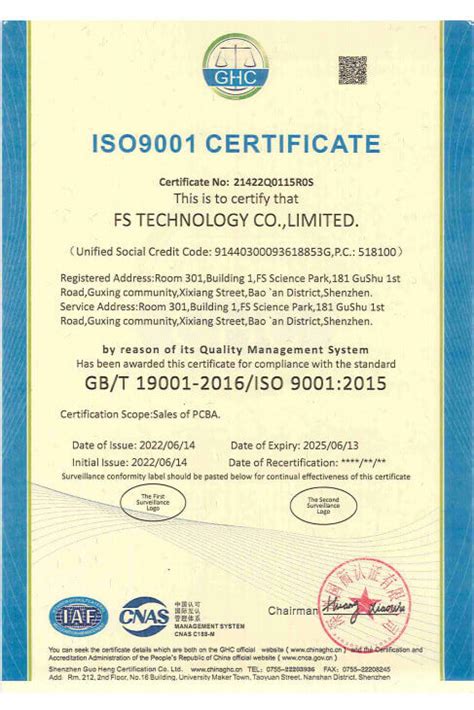
Innovations Driving the Growth of Aluminum PCB Manufacturers
As you delve into the world of aluminum PCB manufacturers, you’ll discover that innovation is at the forefront of their success and expansion. One pivotal aspect driving growth is the advancement in manufacturing techniques that enhance efficiency and reduce pcb manufacturing costs. These innovative methods coupled with cutting-edge technology enable manufacturers to produce boards with superior thermal management capabilities, which is becoming increasingly essential as electronic devices continue to evolve. Moreover, by investing in research and development, pcb manufacturing companies are cultivating new materials and designs that not only improve performance but also cater to specific industry needs. This commitment to innovation not only positions them as leaders in the pcb manufacturing business, but also highlights their role in shaping modern technology landscapes. Furthermore, these manufacturers are integrating automation and smart production systems to streamline processes, ultimately ensuring that they meet the demands of today’s fast-paced technological world. As a result, aluminum PCBs are gaining traction in various applications, from consumer electronics to medical devices, making them a cornerstone of future technological advancements.
Key Players in the Aluminum PCB Manufacturing Industry
In the rapidly evolving pcb manufacturing landscape, various prominent players have emerged as leaders in the field of aluminum PCB production. These pcb manufacturing companies have capitalized on the unique properties of aluminum, such as its excellent thermal conductivity, to develop high-performance solutions for a range of electronics applications. Innovative designs and advanced manufacturing techniques are at the core of their operations, allowing these companies to lower pcb manufacturing costs while enhancing product quality and reliability. The synergy between technology advancements and pcb manufacturing business strategies is evident as these key players constantly push the envelope in terms of efficiency and scalability. Companies are now focusing on specialized sectors, including LED lighting, automotive electronics, and high-power devices, which require superior thermal properties that only aluminum PCBs can offer. As you explore this dynamic industry, you can appreciate how these leading manufacturers not only drive competition but also contribute to broader technological advancements within the electronics sector.
Applications of Aluminum PCBs in Modern Technology
In today’s fast-paced world of electronics, aluminum PCBs are becoming increasingly essential due to their superior thermal management capabilities. One area where these boards shine is in high-power applications such as LED lighting, where the need for effective heat dissipation is paramount. By utilizing aluminum PCB manufacturing, companies can ensure that their products maintain optimal performance levels while enhancing durability and longevity. Moreover, the light weight and robustness of aluminum make it an ideal choice for various industries, including telecommunications and automotive, where reliability under harsh conditions is critical. When considering pcb manufacturing, you might notice that costs can vary widely among different pcb manufacturing companies; however, investing in aluminum options often leads to better overall performance and reduced failure rates. As you explore the pcb manufacturing business, recognizing the potential of aluminum PCBs will not only contribute to enhanced product reliability but also set you apart in a competitive market increasingly driven by technological advancement and innovation.
Challenges Faced by Aluminum PCB Manufacturers
While the rise of aluminum PCB manufacturers marks a significant technological advancement, this sector does not come without its challenges. One of the primary issues is the pcb manufacturing cost, which can be higher than traditional materials due to the unique properties that aluminum offers. This can pose barriers for pcb manufacturing companies seeking to adopt aluminum PCBs, as they need to balance performance with budget constraints. Additionally, the intricacies involved in designing and establishing a successful pcb manufacturing business in this niche market require substantial investment in both technology and expertise. The volatile prices of raw materials further complicate these dynamics, potentially affecting production schedules and profit margins. Moreover, manufacturers struggle with the need for precise thermal management solutions; while aluminum excels in this area, it demands a level of precision in pcb manufacturing that not all facilities may have mastered. To remain competitive and continue driving innovation, companies must navigate these challenges adeptly, ensuring they can meet both customer expectations and market demands effectively.
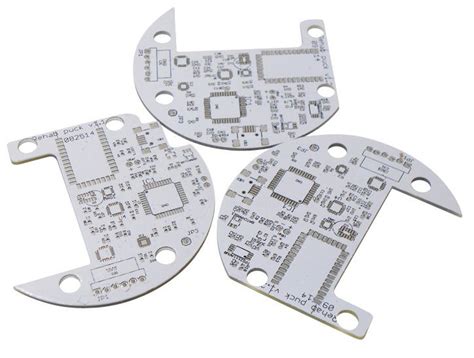
Future Trends in Aluminum PCB Manufacturing
As you look toward the horizon of aluminum PCB manufacturing, it becomes evident that several key trends are shaping the industry. One of the most significant is the continuous drive for higher efficiency and reduced pcb manufacturing costs. This demand is prompting pcb manufacturing companies to invest in advanced technologies that streamline production processes and enhance material utilization. Furthermore, the increasing complexity of electronic devices, coupled with the need for superior thermal management, is fueling innovative approaches in pcb manufacturing. Expect to see advancements like automated assembly techniques and enhanced material properties that extend life cycles while maintaining performance standards. Sustainability also plays a pivotal role; many pcb manufacturing companies are exploring eco-friendly practices, aiming to reduce waste and energy consumption during production. As these trends evolve, you can anticipate a dynamic shift in how aluminum PCBs are perceived and utilized within various electronic applications, making them essential components in cutting-edge technology solutions.

Conclusion
In closing, the aluminum PCB manufacturers have become an integral part of the pcb manufacturing landscape, demonstrating how innovation drives pcb manufacturing companies forward. As you consider the various pcb manufacturing costs, it’s evident that these companies are not only capitalizing on the physical properties of aluminum for improved thermal management but are also pioneering techniques that enhance performance and durability in their products. The significance of their developments in modern technology cannot be overlooked, as they contribute to solutions that foster greater efficiency in electronics. Understanding the vital role these manufacturers play in your projects can inform your decisions within the pcb manufacturing business, ultimately leading you to choose options that provide superior quality and reliability while also aligning with technological trends. As you navigate this evolving industry, acknowledging these players will empower you to make well-informed choices, ensuring your products meet the ever-increasing demands of today’s electronic applications.
FAQs
What is the significance of aluminum PCBs in modern electronics?
Aluminum PCBs play a crucial role in enhancing the thermal management capabilities of electronic devices. Their superior heat dispersion properties make them ideal for applications that generate significant heat, thus improving the overall reliability and performance of electronic components.
How do aluminum PCB manufacturers compare to traditional PCB manufacturing companies?
While traditional PCB manufacturing companies often use stainless steel or fiberglass substrates, aluminum PCB manufacturers focus on optimizing thermal performance and efficiency. The use of aluminum as a substrate material provides better heat dissipation, making it increasingly favored in high-power applications.
What factors influence the pcb manufacturing cost for aluminum PCBs?
The pcb manufacturing cost typically depends on various factors such as material quality, complexity of the design, order volume, and specific processing requirements. Aluminum’s unique properties can contribute to higher upfront costs; however, these are often offset by improved performance and longevity in demanding applications.
What are common applications for aluminum PCBs in the pcb manufacturing business?
Aluminum PCBs are commonly utilized in LED lighting, power supplies, automotive electronics, and other devices that require efficient thermal management. Their versatility makes them a popular choice among designers and engineers in various industries.
Can you provide insights on the future of aluminum PCB manufacturing?
As advancements continue to be made in materials science and electronics design protocols, it’s expected that the demand for aluminum PCBs will grow significantly. Innovations within this field will likely focus on further improving thermal management efficiency while reducing pcb manufacturing costs, ultimately benefiting sectors such as renewable energy and electric vehicles.

